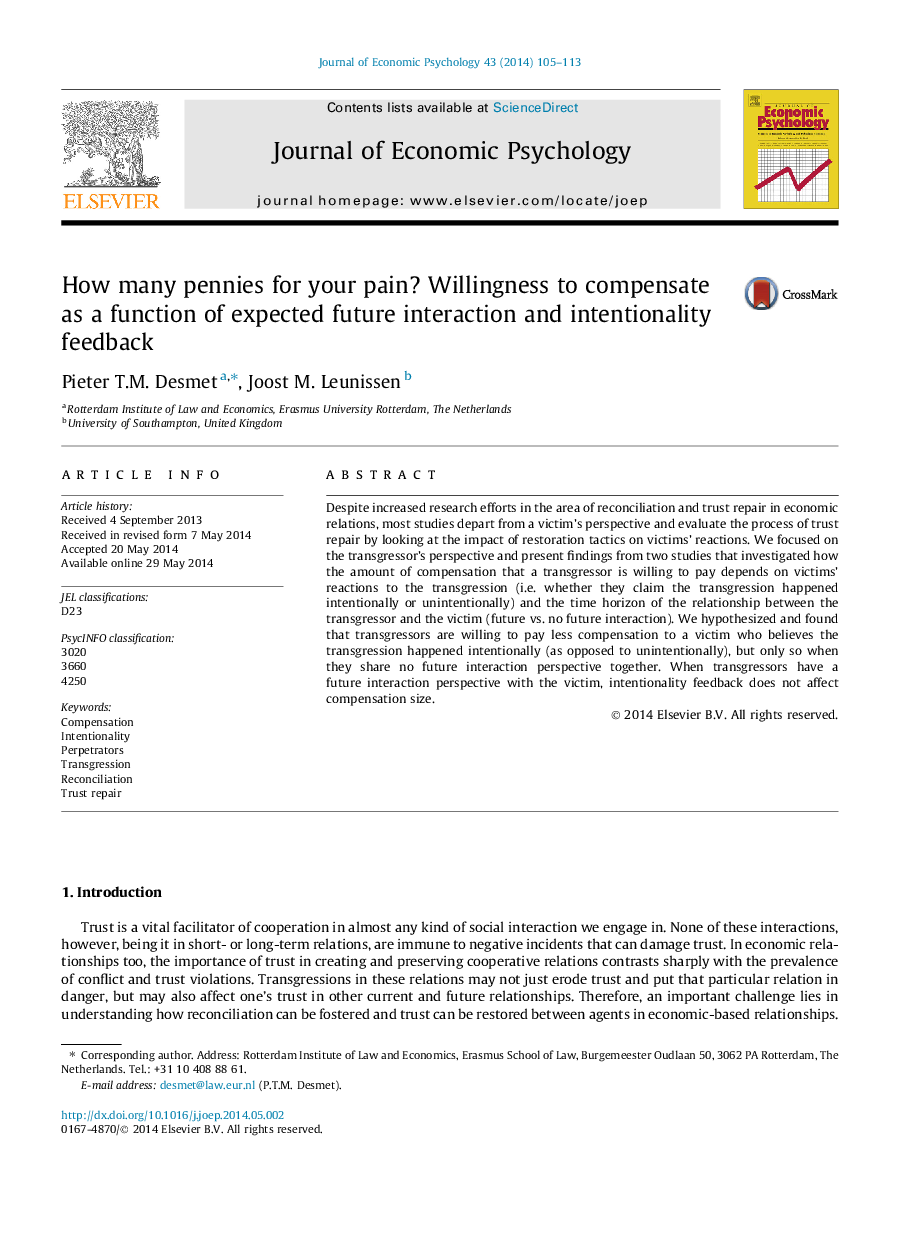| Article ID | Journal | Published Year | Pages | File Type |
|---|---|---|---|---|
| 884955 | Journal of Economic Psychology | 2014 | 9 Pages |
•We investigate perpetrators’ willingness to compensate in economic relations.•We test how victims’ feedback influences the amount of compensation awarded.•Whether feedback affects compensation size depends on the relation’s time horizon.
Despite increased research efforts in the area of reconciliation and trust repair in economic relations, most studies depart from a victim’s perspective and evaluate the process of trust repair by looking at the impact of restoration tactics on victims’ reactions. We focused on the transgressor’s perspective and present findings from two studies that investigated how the amount of compensation that a transgressor is willing to pay depends on victims’ reactions to the transgression (i.e. whether they claim the transgression happened intentionally or unintentionally) and the time horizon of the relationship between the transgressor and the victim (future vs. no future interaction). We hypothesized and found that transgressors are willing to pay less compensation to a victim who believes the transgression happened intentionally (as opposed to unintentionally), but only so when they share no future interaction perspective together. When transgressors have a future interaction perspective with the victim, intentionality feedback does not affect compensation size.
